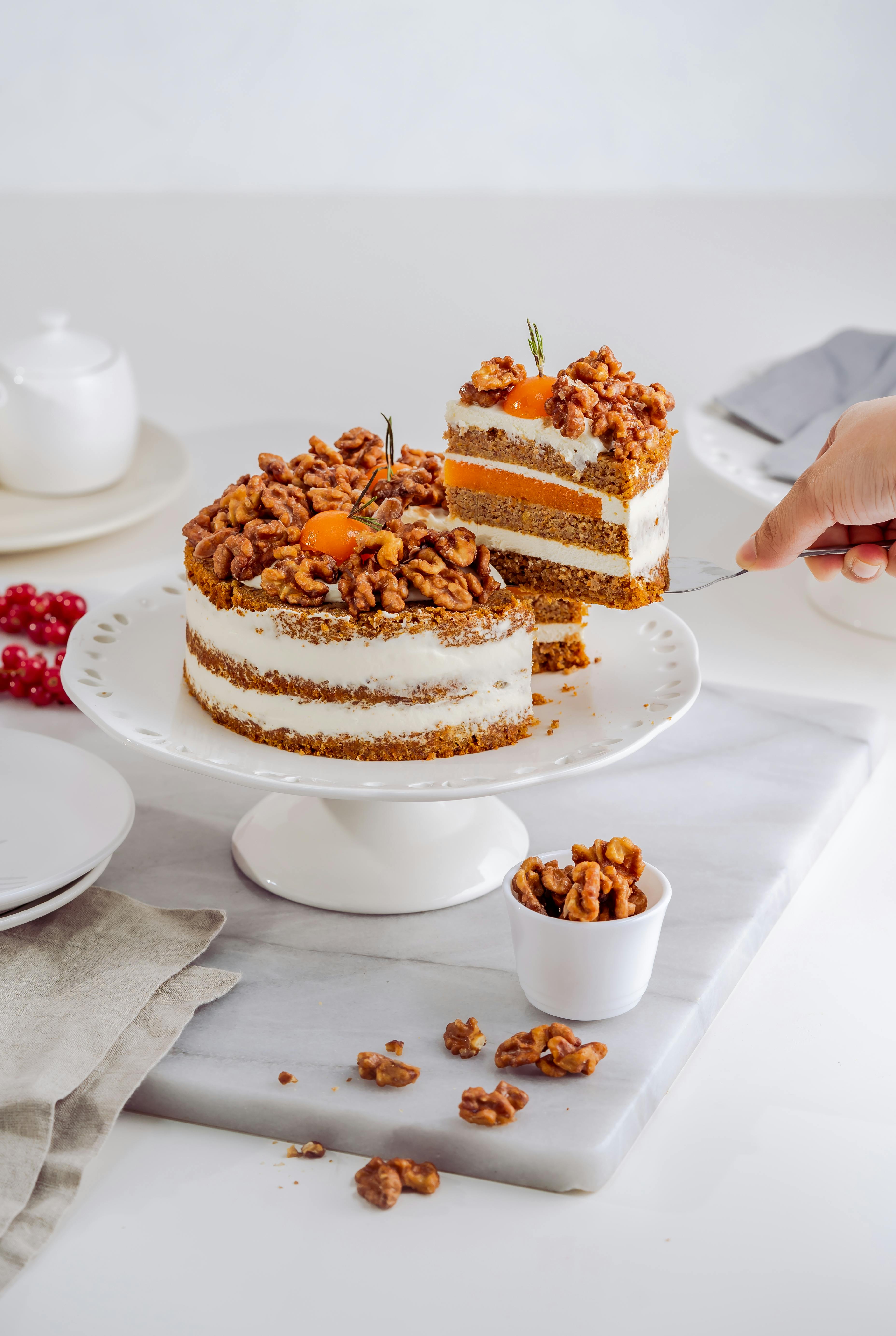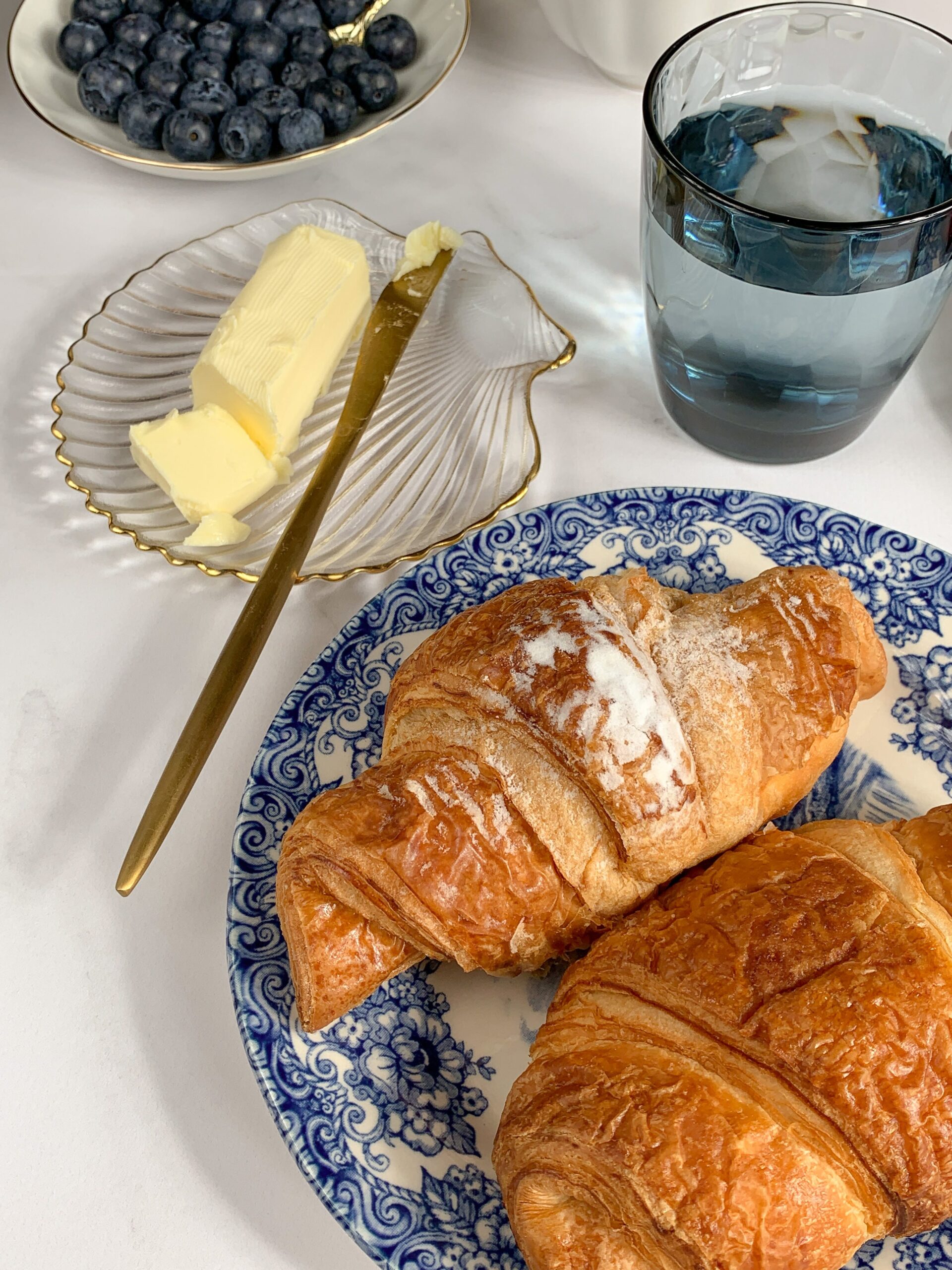Indulge in the tantalizing world of nut butter creations that extend far beyond the ever-popular peanut butter. At Tastepan.com, we invite you to embark on a culinary journey like no other. Delve into our treasure trove of mouthwatering recipes, where you’ll discover a myriad of delectable options featuring various nut butters. From creamy almond butter to rich and velvety cashew butter, these recipes are guaranteed to tantalize your taste buds and take your dishes to new heights. With step-by-step instructions, ingredient lists, and expert tips at your disposal, creating delicious meals has never been easier. So, get ready to expand your nut butter horizons and unleash your inner chef with our Nut Butter Creations collection.

Health Benefits of Nut Butter
Nut butter is not only a delicious treat but also a source of numerous health benefits. One of the key advantages of nut butter is its high content of healthy fats. The monounsaturated and polyunsaturated fats found in nut butter can help promote heart health by reducing bad cholesterol levels and increasing good cholesterol levels. Incorporating nut butter into your diet can also provide a steady source of energy, thanks to its healthy fat content.
Nut Butter as a Source of Healthy Fats
When it comes to fats, not all are created equal. Nut butter, particularly those made from almonds, cashews, and macadamia nuts, are rich in monounsaturated and polyunsaturated fats. These healthy fats are essential for your body as they can help reduce the risk of heart disease, manage weight, and promote overall well-being. By incorporating nut butter into your diet, you provide your body with a healthy source of fats that can support various bodily functions.
The Nutritional Profile of Nut Butters
In addition to healthy fats, nut butter is also packed with essential nutrients. They are excellent sources of protein, fiber, vitamins, and minerals. For example, almond butter and cashew butter are rich in vitamin E and magnesium, while walnuts, which can be transformed into walnut butter, are high in omega-3 fatty acids. Each type of nut butter offers a unique nutritional profile, making them a versatile and nutritious addition to your diet.
Vitamins and Minerals Found in Nut Butter
Nut butter is a great way to boost your intake of essential vitamins and minerals. Almond butter, for instance, is a fantastic source of vitamin E, which acts as an antioxidant and supports healthy skin and immune function. Cashew butter is rich in dietary minerals like copper and magnesium, which contribute to bone health and energy production. By incorporating a variety of nut butters into your diet, you can ensure you’re getting a wide range of beneficial vitamins and minerals.
Varieties of Nut Butters
The world of nut butters is vast and varied. From classic choices like almond butter and cashew butter to more unique options like hazelnut butter and macadamia nut butter, there is a nut butter to suit every taste and preference.
Almond Butter
Almond butter, made from ground almonds, is a popular choice due to its creamy texture and mild, slightly sweet flavor. It is packed with protein, healthy fats, vitamin E, and magnesium, making it a nutritious choice for any meal or snack.
Cashew Butter
Cashew butter, derived from cashew nuts, has a smooth and velvety texture with a rich and slightly sweet flavor. It is an excellent source of healthy fats, protein, and minerals like copper and magnesium.
Hazelnut Butter
Hazelnut butter, made from roasted hazelnuts, offers a distinct and robust flavor profile. It is packed with healthy fats, dietary fiber, and antioxidants, making it a delicious and nutritious choice.
Macadamia Nut Butter
Macadamia nut butter is known for its creamy and buttery texture. It is rich in monounsaturated fats and provides a good amount of vitamins and minerals like vitamin B6, magnesium, and potassium.
Pecan Butter
Pecan butter, made from pecan nuts, boasts a rich, sweet, and nutty flavor. It is a great source of healthy fats, protein, and dietary fiber, making it a tasty and nutritious addition to your diet.
Pistachio Butter
Pistachio butter is made from ground pistachios and offers a unique and vibrant green color. It has a distinct flavor with sweet and nutty notes. Pistachio butter is rich in healthy fats, protein, and antioxidants.
Sunflower Seed Butter
Sunflower seed butter is a fantastic alternative for those with nut allergies. Made from roasted sunflower seeds, it has a creamy consistency and a mild, nutty flavor. It is a great source of healthy fats, protein, and vitamin E.
Walnut Butter
Walnut butter, created from ground walnuts, has a rich and slightly bitter flavor. It is high in omega-3 fatty acids, protein, and antioxidants, making it a nutritious choice for any meal or snack.
Coconut Butter
Coconut butter is unique in that it is made from the flesh of mature coconuts rather than nuts. It has a thick and creamy texture with a natural sweetness. Coconut butter is rich in healthy fats and provides a good source of fiber.
Seed Butter (e.g., Pumpkin Seed, Sesame Seed)
In addition to nut butters, there are also seed butters made from various seeds. Pumpkin seed butter and sesame seed butter are popular options. They offer a range of flavors and nutritional benefits, including healthy fats, protein, and minerals.

Creative Uses for Nut Butters
Nut butters are incredibly versatile and can be used in numerous creative ways. Whether incorporated into baked goods, smoothies, sauces, or even savory dishes, nut butters can add a delicious and nutritious touch to your culinary creations.
In Baked Goods
Nut butters can be used in a variety of baked goods, such as cookies, muffins, and bread. They add moisture, flavor, and nutrition to your treats. Try adding a spoonful of almond butter to your banana bread recipe or mixing cashew butter into your chocolate chip cookies for a delightful twist.
In Smoothies and Shakes
Adding a dollop of nut butter to your smoothies and shakes can provide a creamy texture and an extra boost of nutrition. Blend almond butter into a banana and spinach smoothie or mix cashew butter into your post-workout protein shake for a delicious and satisfying beverage.
In Salad Dressings
Nut butters can be transformed into creamy and flavorful dressings for your salads. Whisk together almond butter, soy sauce, honey, and rice vinegar for a tangy and savory dressing. Drizzle it over a mixed greens salad or use it as a dip for fresh vegetables.
In Sauces and Dips
Nut butters can be used as a base for creamy and flavorful sauces and dips. Stir together cashew butter, coconut milk, and curry powder for a delectable Thai-inspired sauce. Use it as a dipping sauce for spring rolls or as a topping for grilled chicken.
In Energy Balls and Bars
Nut butters are a key ingredient in homemade energy balls and bars. Mix together your favorite nut butter, oats, honey, and other desired ingredients for a nutritious and portable snack. Shape into balls or bars and refrigerate for a quick and satisfying grab-and-go option.
In Savory Dishes
Don’t limit nut butters to sweet treats – they can add depth and richness to savory dishes as well. Whip up a creamy almond butter sauce to accompany roasted vegetables or use macadamia nut butter as a marinade for grilled chicken. The possibilities are endless when it comes to incorporating nut butter into savory recipes.
In Desserts
Nut butters are a natural fit for desserts, whether it’s spreading them on toast, drizzling over ice cream, or using them as a filling for cakes and pastries. Discover the joy of a peanut butter and chocolate dessert by combining peanut butter with melted chocolate to create a decadent sauce for your favorite sweets.
In Breakfast Dishes
Start your day off right by incorporating nut butter into your breakfast routine. Spread almond butter on toast or use it as a topping for pancakes and waffles. Mix cashew butter into your oatmeal or yogurt for added creaminess and flavor.
In Snacks
Nut butters make for a delicious and nutritious snack on their own. Dip apple slices or carrot sticks into almond butter or spread cashew butter on rice cakes for a satisfying pick-me-up between meals. The natural combination of healthy fats and protein can help keep you feeling full and energized.
As a Topping or Spread
Nut butters can be used as a topping or spread to enhance the flavor of various foods. Whether you’re spreading walnut butter on a sandwich, topping your morning toast with hazelnut butter and banana slices, or adding a spoonful of pistachio butter to your morning granola, these versatile spreads add a burst of flavor and nutrition.
Nut Butter Combinations and Pairings
Nut butter can be elevated by combining it with other ingredients or pairing it with complementary flavors. Here are some creative combinations to try:
Nut Butter and Chocolate
Nut butter and chocolate are a match made in heaven. Whether you’re spreading almond butter on a piece of dark chocolate or mixing peanut butter with cocoa powder to create a rich and creamy sauce, the combination of nut butter and chocolate is always a crowd-pleaser.
Nut Butter and Fruit
Fruit and nut butters go hand in hand. Dip apple slices into cashew butter or spread almond butter on a banana for a quick and nutritious snack. Consider adding a dollop of pistachio butter to your yogurt or blending macadamia nut butter into a berry smoothie for a burst of flavor.
Nut Butter and Spices
Get creative with spices by incorporating them into your nut butter. Try adding cinnamon and nutmeg to almond butter for a warm and comforting flavor. Alternatively, mix cashew butter with cayenne pepper and garlic powder for a savory kick.
Nut Butter and Cheese
Don’t be afraid to experiment with the combination of nut butter and cheese. Spread hazelnut butter on a slice of brie or mix walnut butter into a cheese sauce for a unique and delicious flavor profile. The creaminess of the nut butter and the tanginess of the cheese create a winning combination.
Nut Butter and Jam
The classic combination of nut butter and jam is a timeless favorite. Spread your favorite nut butter on a slice of bread and top it with your preferred flavor of jam or jelly. Whether it’s almond butter and strawberry jam or peanut butter and grape jelly, this pairing never disappoints.
Nut Butter and Coffee
For coffee enthusiasts, adding a dollop of nut butter to your morning brew can enhance both taste and texture. Blend almond butter into your coffee for a creamy and nutty latte or stir cashew butter into your cold brew for a smooth and satisfying drink.
Nut Butter and Yogurt
Yogurt and nut butter create a delightful and nutritious combination. Swirl almond butter into Greek yogurt for added richness and flavor, or spoon cashew butter onto a bowl of yogurt for a satisfying and protein-packed snack.
Nut Butter and Vegetables
Pairing nut butter with vegetables may not be the most common combination, but it can be surprisingly delicious. Whip up a peanut sauce to drizzle over roasted Brussels sprouts or toss broccoli florets with almond butter for a unique twist. The creaminess of the nut butter adds a delightful depth of flavor to the vegetables.
Nut Butter and Meat
Don’t overlook the potential of nut butter to elevate savory dishes containing meat. Use almond butter as a flavorful coating for chicken breasts or mix cashew butter into a stir-fry for added richness and depth of flavor. The combination of nut butter and meat creates a delightful balance of flavors.
Nut Butter and Bread
Nut butter and bread are a classic pairing that never goes out of style. Whether you’re spreading creamy macadamia nut butter onto a warm slice of toast or layering pecan butter with sliced bananas in a sandwich, the combination of nut butter and bread is a delicious and satisfying choice.

DIY Nut Butter Making
If you’re feeling adventurous, making your own nut butter at home can be a fun and rewarding experience. Here are some tips and ideas to get you started:
Basic Nut Butter Recipe
The basic process of making nut butter involves roasting the nuts, blending them until smooth, and adding any desired flavors or sweeteners. Start by roasting your choice of nuts in the oven until fragrant and slightly golden. Allow them to cool before blending them in a food processor or high-powered blender until smooth and creamy. Add a touch of salt, honey, or any other desired flavors to enhance the taste.
Roasted Nut Butter Variations
To add depth and flavor to your nut butter, consider roasting the nuts before blending them. Roasting brings out their natural oils and enhances their flavor. You can experiment with different roasting times and temperatures to achieve your desired taste and texture.
Flavored Nut Butter Ideas
Get creative with flavors by adding various ingredients to your nut butter. Mix in cocoa powder for a chocolatey twist or add a touch of vanilla extract for a hint of sweetness. Dried fruits, spices like cinnamon or nutmeg, and even savory flavors like garlic or chili powder can all be used to customize your nut butter.
Customizing Nut Butter Consistency
The consistency of nut butter can vary depending on personal preference. If you prefer a smooth and creamy texture, blend the nuts for a longer duration. For a chunkier nut butter, pulse the blender or food processor a few times to achieve a coarser consistency. You can also experiment with adding a small amount of oil, such as coconut or avocado oil, to achieve a smoother texture.
Tips for Blending Nut Butter
Making nut butter at home can require a bit of patience and technique. Here are some tips to ensure a successful and smooth blending process:
- Start with a high-powered blender or food processor to ensure optimal results.
- Use roasted nuts to enhance the flavor and oil content of the nut butter.
- Allow the nuts to cool completely before blending to avoid the release of excess oil.
- Blend in small batches to ensure even blending and prevent overheating the blender or food processor.
- Stop and scrape down the sides of the blender or food processor periodically to ensure all the nuts are evenly blended.
- Be patient! It may take several minutes of blending for the nuts to transform into a creamy and smooth butter.
Nut Butter for Dietary Restrictions
Nut butter is an excellent choice for individuals with specific dietary restrictions or preferences. Here are some variations to consider:
Gluten-Free Nut Butters
All nut butters are naturally gluten-free, making them a great option for those following a gluten-free diet. Be sure to check the ingredient labels to ensure there are no added gluten-containing ingredients.
Vegan Nut Butters
Most nut butters are vegan-friendly as they are made solely from nuts and do not contain any animal products. Double-check the ingredient labels to avoid any added honey or dairy products.
Paleo-Friendly Nut Butters
Nut butters, especially those made from almonds, cashews, and macadamia nuts, are considered paleo-friendly. They align with the principles of a paleo diet, which focuses on whole, unprocessed foods.
Keto-Friendly Nut Butters
Many nut butters are suitable for a ketogenic (keto) diet due to their high fat content and low carbohydrate content. Almond butter and macadamia nut butter are particularly popular choices for individuals following a keto lifestyle.
Low-Sugar Nut Butters
For those watching their sugar intake, there are low-sugar options available. Look for natural nut butters that only contain nuts and have no added sugars or sweeteners.
Allergen-Free Nut Butters
For individuals with nut allergies, there are alternative options available that mimic the taste and texture of traditional nut butters. Seed butters, such as pumpkin seed butter or sesame seed butter, offer similar nutritional benefits without the risk of nut allergies.
Nut-Free Nut Butter Alternatives
If you have a nut allergy or simply want to try something different, there are nut-free alternatives available. Sunflower seed butter and coconut butter are excellent choices for those seeking a delicious and nutritious spread without the presence of nuts.
Exploring International Nut Butter Recipes
Take your taste buds on a worldwide adventure by exploring international nut butter recipes. Each region offers unique flavors and combinations that can elevate your nut butter experience.
Asian-Inspired Nut Butter Recipes
Asian cuisine offers countless opportunities to incorporate nut butter. Try your hand at making a satay sauce with peanut butter, soy sauce, and spices for a delicious dipping sauce or marinade. Alternatively, explore the flavor of black sesame seed butter by adding it to Asian-inspired dishes like stir-fries or noodle dishes.
Latin American Nut Butter Recipes
Latin American cuisine is famous for its bold flavors, and nut butter can be a wonderful addition to these dishes. Create a delectable mole sauce by combining peanuts or almonds with chili peppers, chocolate, and various spices. Alternatively, use cashew butter to make a creamy and tangy sauce for dishes like tamales or enchiladas.
Middle Eastern Nut Butter Recipes
Middle Eastern cuisine is renowned for its flavorful dips and spreads, many of which incorporate nut butter. Make a classic tahini sauce by blending roasted sesame seed butter with garlic, lemon juice, and olive oil. Use almond butter as a base for savory dips like muhammara or as a topping for traditional Middle Eastern pastries.
European Nut Butter Recipes
European cuisine may not be as commonly associated with nut butter, but there are still creative uses to explore. Incorporate hazelnut butter into dessert recipes inspired by European classics, such as Nutella-filled pastries or hazelnut-flavored cakes. For a savory twist, make a walnut butter-based pesto to toss with pasta or spread on crusty bread.
African Nut Butter Recipes
African cuisine has a rich culinary heritage that often includes the use of nuts and seeds. Experiment with the flavors of African cuisines by incorporating peanut-based sauces into stews and curries or by making a nutritious and delicious groundnut soup. The combination of nuts and spices creates a delightful depth of flavor that is characteristic of African cuisine.
Nut Butter as a Healthy Snack Option
In addition to their versatility and delicious taste, nut butters also offer a range of health benefits that make them an ideal snack option. Here are some of the advantages of incorporating nut butter into your snacking routine:
Nut Butter and Weight Management
Despite their caloric density, nut butters can actually contribute to weight management. Their high content of healthy fats, protein, and fiber helps keep you feeling satiated and satisfied, reducing the likelihood of overeating.
Nut Butter for Post-Workout Recovery
Nut butter is an excellent snack option for post-workout recovery due to its combination of healthy fats and protein. Consuming a small serving of nut butter after a workout can help replenish energy stores and support muscle repair and recovery.
Nut Butter for Gut Health
The fiber content in nut butter supports healthy digestion and can contribute to improved gut health. Incorporating nut butter into your diet can help promote regular bowel movements and provide nourishment to beneficial gut bacteria.
Nut Butter and Heart Health
The healthy fats found in nut butter, such as monounsaturated and polyunsaturated fats, have been shown to have positive effects on heart health. Regular consumption of nut butter as part of a balanced diet can help lower bad cholesterol levels and reduce the risk of heart disease.
Nut Butter for Energy Boost
The combination of healthy fats and protein in nut butter provides a sustained source of energy. Choosing nut butter as a snack can help stabilize blood sugar levels and provide a steady release of energy throughout the day.
Nut Butter and Improving Mood
Nut butter contains several nutrients, such as magnesium and vitamin E, which are beneficial for brain health and mood regulation. Including nut butter in your diet can contribute to improved overall mood and well-being.
Nut Butter for Nutrient Absorption
Pairing nut butter with certain foods can enhance nutrient absorption. For example, the healthy fats in nut butter can improve the absorption of fat-soluble vitamins, such as vitamin A, D, E, and K, from other foods.
Nut Butter for Joint Health
The omega-3 fatty acids found in certain nut butters, such as walnut butter, have anti-inflammatory properties that can benefit joint health. Including nut butter in your diet may help reduce inflammation and support healthy joint function.
Nut Butter for Brain Function
The healthy fats and antioxidants in nut butter support brain health and cognitive function. Regular consumption of nut butter can contribute to improved memory, focus, and overall brain function.
Nut Butter and Skin Health
The vitamin E and omega-3 fatty acids present in certain nut butters can promote healthy skin by reducing inflammation and providing essential nutrients. Including nut butter in your diet can contribute to a radiant and nourished complexion.
How to Incorporate Nut Butter into Your Diet
Now that you have a better understanding of the health benefits and culinary possibilities of nut butter, it’s time to start incorporating it into your diet. Here are some ideas and tips to help you make the most of this delicious and nutritious ingredient:
Meal Planning with Nut Butter
When meal planning, consider incorporating nut butter as part of your breakfast, lunch, dinner, and snack options. This will allow you to enjoy the benefits of nut butter throughout the day and ensure you are getting a wide range of nutrients.
Nut Butter in Breakfast Ideas
Start your day off right by incorporating nut butter into your breakfast routine. Spread almond butter on whole grain toast or swirl it into your oatmeal. Make a smoothie with cashew butter, banana, spinach, and your choice of milk for a nutritious and filling breakfast.
Nut Butter in Lunch Ideas
Add a dollop of nut butter to your lunch for an extra burst of flavor and nutrition. Use it as a dressing for your salad or as a spread in your sandwich. Consider making a peanut sauce or almond butter sauce to drizzle over stir-fries or grain bowls.
Nut Butter in Dinner Ideas
Get creative in the kitchen by using nut butter in your dinner recipes. Make a homemade peanut sauce for your Thai-inspired noodle dishes or use cashew butter as a creamy base for curries and soups. Experiment with different flavors and combinations to discover new and exciting dishes.
Nut Butter in Snack Ideas
Nut butter is an ideal snack option on its own or paired with other ingredients. Dip apple slices or carrot sticks into your favorite nut butter for a quick and satisfying snack. Or, make a trail mix by combining nut butter, nuts, dried fruits, and seeds for a portable and energy-boosting treat.
Nut Butter in Dessert Ideas
Satisfy your sweet tooth with nut butter-infused desserts. Swirl almond butter into your brownie batter or make a peanut butter and chocolate chip cookie. You can even freeze nut butter into bite-sized treats or mix it into ice cream for a deliciously creamy treat.
Nut Butter in Beverage Ideas
Elevate your beverages by incorporating nut butter. Mix almond butter into your morning coffee or blend cashew butter into your post-workout protein shake. Nut butter can add creaminess and flavor to your favorite beverages while providing a nutritional boost.
Nut Butter as a Substitute in Recipes
In many recipes, nut butter can be used as a substitute for other ingredients to add creaminess, moisture, and flavor. Consider using nut butter as an alternative to butter or oil in baking recipes or as a replacement for mayonnaise or cream-based dressings.
Portion Control and Moderation
While nut butter offers many health benefits, it’s important to practice portion control and moderation. Nut butter is calorie-dense, so be mindful of your serving sizes. Aim for 1-2 tablespoons per serving and incorporate it as part of a balanced diet.
Conclusion
In conclusion, nut butter is not only a delectable treat but also a source of numerous health benefits. From providing essential healthy fats to being packed with protein, fiber, vitamins, and minerals, nut butter offers a wide range of nutritional benefits. Whether you prefer almond butter, cashew butter, or any other variety, there is a nut butter to suit every taste and preference. The versatility of nut butter allows for creative uses in various recipes, from baked goods and smoothies to savory dishes and desserts. By exploring international nut butter recipes, you can take your taste buds on a worldwide adventure. Nut butter is a healthy snack option that can support weight management, post-workout recovery, gut health, heart health, and overall well-being. With a little creativity and planning, you can easily incorporate nut butter into your daily diet and enjoy its delicious flavors and health benefits. So go ahead, grab a jar of your favorite nut butter, and start exploring the endless possibilities!

